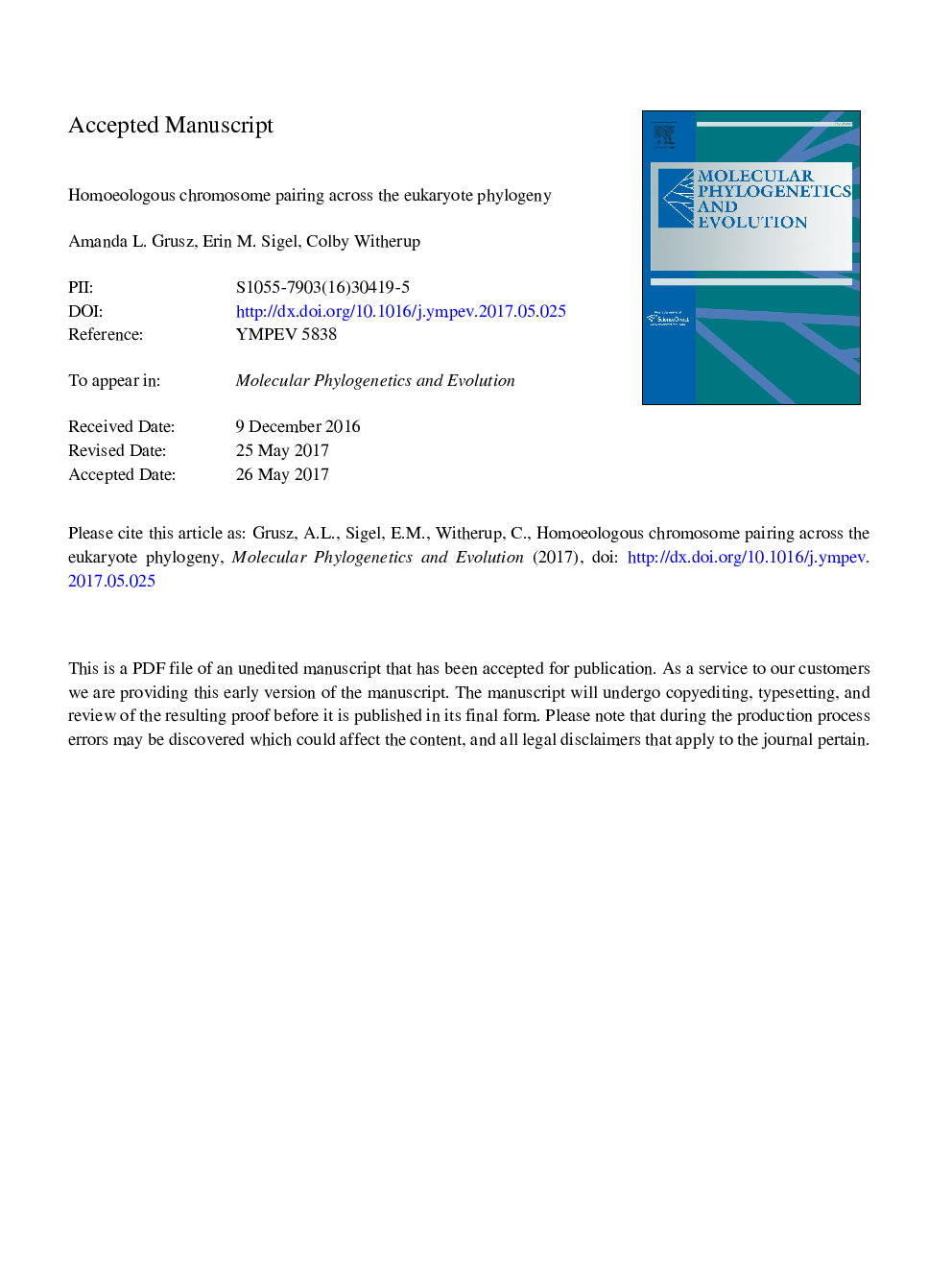| Article ID | Journal | Published Year | Pages | File Type |
|---|---|---|---|---|
| 8649108 | Molecular Phylogenetics and Evolution | 2017 | 56 Pages |
Abstract
During the past quarter century, molecular phylogenetic inferences have significantly resolved evolutionary relationships spanning the eukaryotic tree of life. With improved phylogenies in hand, the focus of systematics will continue to expand from estimating species relationships toward examining the evolution of specific, fundamental traits across the eukaryotic tree. Undoubtedly, this will expose knowledge gaps in the evolution of key traits, particularly with respect to non-model lineages. Here, we examine one such trait across eukaryotes-the regulation of homologous chromosome pairing during meiosis-as an illustrative example. Specifically, we present an overview of the breakdown of homologous chromosome pairing in model eukaryotes and provide a discussion of various meiotic aberrations that result in the failure of homolog recognition, with a particular focus on lineages with a history of hybridization and polyploidization, across major eukaryotic clades. We then explore what is known about these processes in natural and non-model eukaryotic taxa, thereby exposing disparities in our understanding of this key trait among non-model groups.
Keywords
Related Topics
Life Sciences
Agricultural and Biological Sciences
Ecology, Evolution, Behavior and Systematics
Authors
Amanda L. Grusz, Erin M. Sigel, Colby Witherup,
